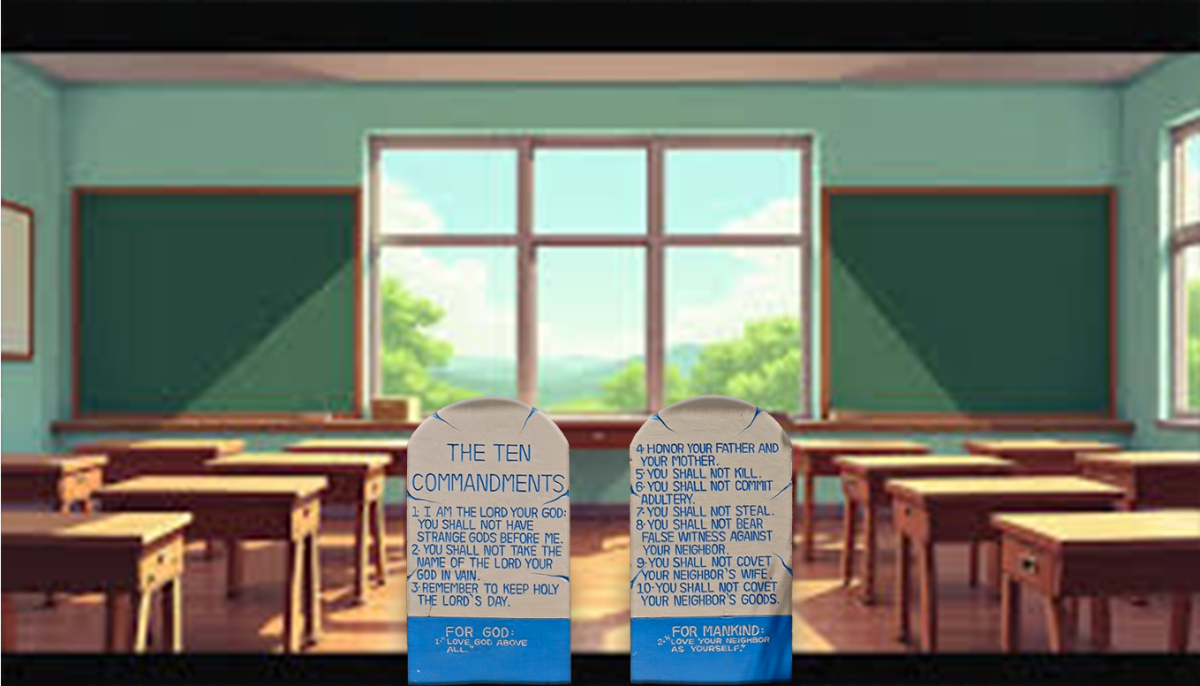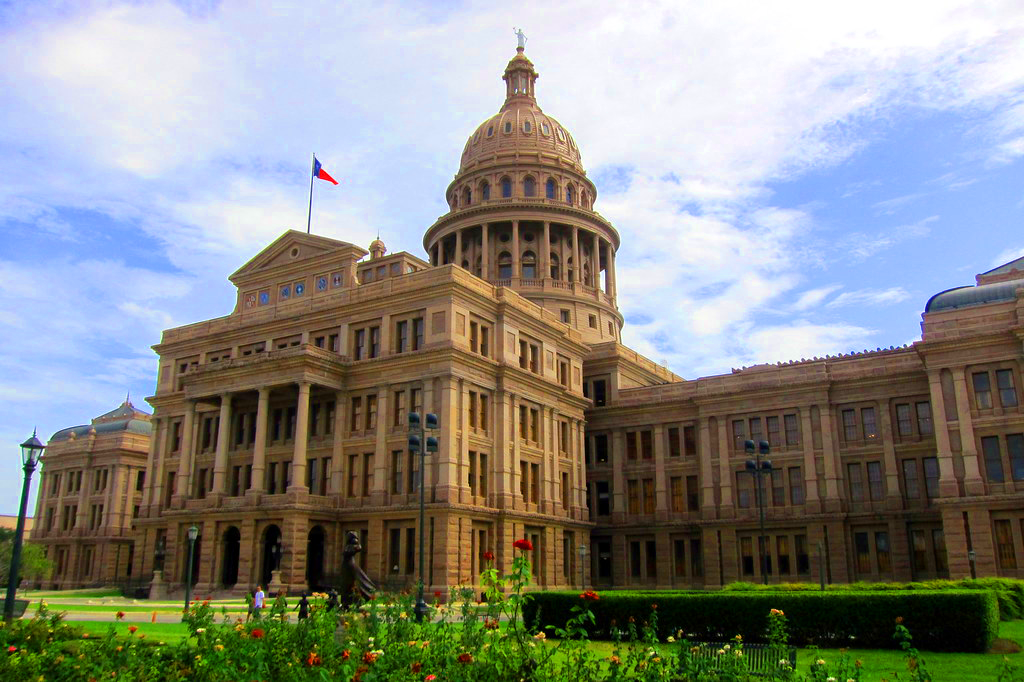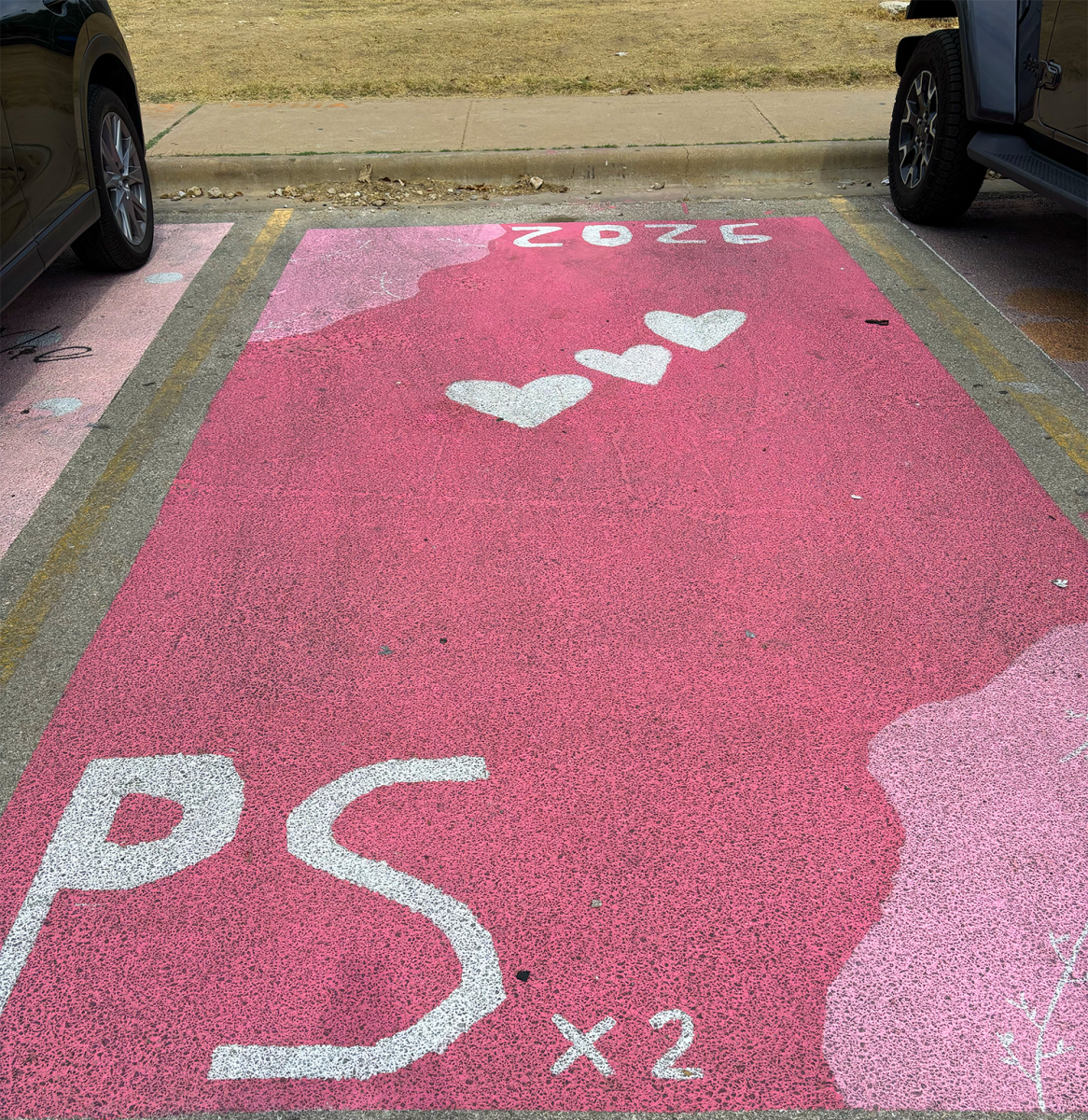In recent decades, public schools in Texas have made significant progress in their acceptance and encouragement of diversity among students. Most schools value creating a classroom environment that is a safe space for self-expression and personal beliefs. However, what is this inclusion still valued when it comes to religion?
In June 2025, Governor Greg Abbott signed a bill that requires all school classrooms to display the Ten Commandments (Texas Senate Bill 10). Governor Abbott then signed another bill requiring schools to encourage students to participate in daily prayers and to study religious texts together as a class (Texas Senate Bill 11). Parents and educators protested immediately against this legislation, arguing that both bills are an unconstitutional coercion on students’ religious freedom, as they go against the separation of church and state. Several other critics of these bills have also expressed concern about the other prominent religions being disregarded, claiming that if Christian values are being enforced in schools, then other religions’ values should be as well.
Despite the torrent of criticism towards these orders, both bills were passed and signed into law, with plans to take effect in public schools in Texas by September 1, 2025. However, in an effort to halt the implementation of these controversial legislative decisions, federal Judge Fred Biery issued a temporary injunction to temporarily block the bills from taking full effect. This order only applies to certain school districts primarily located in the Austin, Dallas, Houston, and San Antonio areas. Although Judge Biery’s order brings time for legal discussion on the matter, this decision is impermanent and temporary, leaving families without clarity. Many families hold persistent worry that their children will continue to be marginalized and imposed upon specific religious views. In the meantime, schools and teachers in Texas have been actively seeking approaches that will creatively maintain classroom inclusivity while respecting these laws.
While many have expressed their personal opinions regarding these bills, the perspectives of students and teachers who are most affected by these sudden changes offer valuable insight into how these policies are currently affecting the classroom.
Esther Cooper, a 10th grade student at AHS, when asked if she thinks having religious messages in the classroom could make some students feel excluded or uncomfortable, she responded with, “Yes, even if you include religious messages and rules in a class, it could exclude those who are non-believers or whatnot.” Esther then adds, “That’s not to say we should keep folks from talking about it or practicing it, of course, just don’t force it on those who hold different beliefs.” Esther’s statement agrees that religion in classrooms can make some students feel excluded, but also recognizes that speaking about and practicing religion should be allowed, just in a manner that doesn’t enforce it on others. Mr. Max Vanderheyden, a debate and AP human geography teacher here at AHS, when asked if he believes that the Ten Commandments being displayed in classrooms is about values, not religion, replies with, “Teaching values is important, but it does not require religious texts. As a debate teacher, I see every day that values themselves are often debated—what justice, fairness, or freedom mean can differ widely and are not exclusively religious ideas.” Mr. Vanderheyden’s response insists that values themselves should be taught and that their importance should be acknowledged by students. But, he then argues that values’ meanings can be universal, and do not have to be presented just through the lens of religious viewpoints.
As of now, this story continues. There is limited assurance on how these new laws will be manifested in the future. The Texas Senate Bill 10 is currently being revised and may be considered for approval in the near future, and the Texas Senate Bill 11 is already being implemented in some public schools across the state. There have been widespread protests and many filed lawsuits taking action against these bills. However, many of the concerned individuals have begun to shift their focus towards ways to keep schools an inclusive environment that respects diverse beliefs. Schools in the following districts of Austin ISD, Lake Travis ISD, Dripping Springs ISD, Alamo Heights ISD, North East ISD, Lackland ISD, Northside ISD, Houston ISD, Fort Bend ISD, Cypress-Fairbanks ISD, and Plano ISD have all made it clear that they intend to continue to preserve their campus as secure and inclusive despite these changes, reminding students that school should be not only a place to learn, but also a place to express themselves freely and feel comfortable asking for help.








